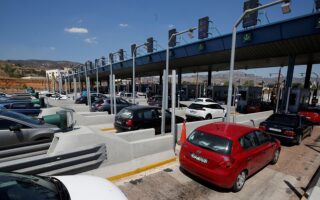Wasting time

So how are we doing? The economy is expanding, if not at a high rate, at least at a rate higher than the eurozone average, the public debt as a percentage of GDP is decreasing, the targets for primary surpluses are not difficult to achieve, the abundant money circulating in the upper echelons of society is generating and dispersing feelings of euphoria and together with some investments, albeit less than required, unemployment is slowly but steadily decreasing. After all that the country has been through, it is not surprising that the forecasts that we have two or three years ahead of us where, if nothing else bad happens in the world, the economy will move steadily and money will be made, sound like music to our ears.
What is explainable, but perhaps not justified, is complacency. Greek GDP remains lower than it was 15 years ago. Public debt, both in absolute numbers and as a percentage of GDP, is many times what it was 15 years ago – when the debt crisis began. Next to it, another debt is swelling: the mammoth private one, which is higher than in the past. The deficit in the balance of payments remains above the European Commission’s point of alarm. Private investments remain stuck nine percentage points of GDP below the European average – despite earnings that are higher than the rest of Europe, despite cheap wage labor that is much cheaper here. Inflation, inflationary tax revenues and an unprecedented redistribution of wealth at the expense of labor are at the basis of the modern “economic miracle.”
Something similar to what is happening with the climate is happening with the Greek economy: the unprecedented pleasant winter weather is one side of a great evil – the climate crisis.
In the economy, the current “summertime” is due to the abundance of capital from Europe, business profits, and government money from inflationary revenues. It is the cheerful face of an economy that is otherwise nothing more than a set of acute structural problems. Everyone knows that if a recession reappears in Europe our economy will turn upside down. Therefore, a responsible policy would be to use the economic lull and abundant EU funds to fix the structural problems and strengthen the resilience of the economy, with policies that promote and claim wider consensuses.
The government’s main concern is to maintain its political dominance by “smart” management of its public image and by tripping up the opposition – which, to be fair, is not that difficult – without having to be held accountable for the way it manages the European funds.
And if New Democracy’s main aim is to secure a percentage starting with 3 in the upcoming European elections (otherwise there will be a lot of whining within the party) the two main opposition parties, SYRIZA and PASOK, will fighting over a bet that they carelessly placed at an earlier time, when they both believed they would undoubtedly win it: the second place. Whichever party comes third will face an internal crisis – maybe even both, if their percentages are low. In short, Greece is wasting time it doesn’t really have. And that is how we roll.





